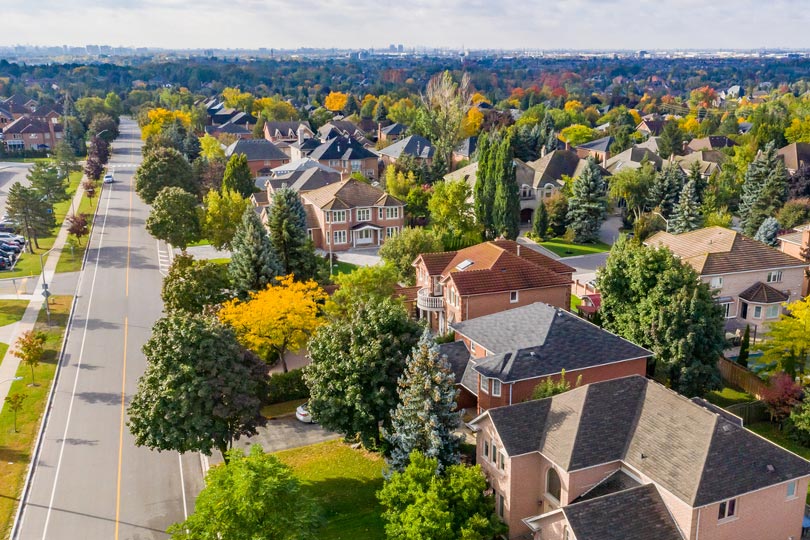Home Loan Trends In 2023

At the end of each year, you'll read mortgage industry professionals making predictions about the year to come. What could 2023 hold for those who want to build instead of buying? One overall trend to watch in 2023 is that technology is changing nearly every aspect of the home loan industry.
A mortgage industry whitepaper published this year reports over 60% of house hunters preferring to research homes for sale online, with almost 40% willing to explore a listed property virtually.
Those numbers are associated with the sale of existing construction, but some trends do directly affect those who want to build a home; consider the approximately 25% of home buyers who choose to review their mortgage documents digitally instead of on paper.
If you are planning to build in 2023, it may serve you well to get familiar with the kinds of technology you might need to deal with to apply for and close a One-Time Close mortgage. There are several good reasons for this--what is yesterday's technological fads are tomorrow's industry standard.
Consider the fact that at one time, those borrowing money to build a home didn't have the ability to e-sign their documents or submit them electronically.
Today you can do both. You can also choose to close your loan online. And it's not just one type of mortgage lending option--you can e-sign an FHA, VA, or even a conventional mortgage depending on the lender and how integrated the technology is in that lender's process.
What does it mean to have a digital or online loan process? The Freddie Mac official site has a section on its guidelines for electronic closing or “e-closing” home loans.
“In an eClosing, most or all of the steps in the closing process take place online, that is, documents are prepared, viewed, signed, stored, and transmitted electronically. Generally, both paper closings and eClosings have the same parties, legal documentation, and need for valid enforceable mortgage loan documents.”
Some One-Time Close loan applicants may find this confusing, but it helps to be as familiar with lender practices as possible--in an age of hackers, scammers, and identity thieves the more you know about how the legitimate loan process works, the harder it is to trick you into doing something you shouldn't be doing.
Going into 2023 the industry trends you should expect to see include potential improvements in the mortgage market itself, but also further developments and greater adoption of electronic mortgage technology.
Want More Information About One-Time Close Loans?
We have done extensive research on the FHA (Federal Housing Administration) and the VA (Department of Veterans Affairs) One-Time Close Construction loan programs.
We have spoken directly to licensed lenders that originate these residential loan types in most states and each company has supplied us with the guidelines for their products. We can connect you with mortgage loan officers who work for lenders that know the product well and have consistently provided quality service.
If you are interested in being contacted by a licensed lender in your area, please send responses to the questions below. All information is treated confidentially.
OneTimeClose.com provides information and connects consumers to qualified One-Time Close lenders to raise awareness about this loan product and to help consumers receive higher-quality service.
We are not paid for endorsing or recommending the lenders or loan originators and do not otherwise benefit from doing so. Consumers should shop for mortgage services and compare their options before agreeing to proceed.
Please note that investor guidelines for the FHA and VA One-Time Close Construction Program only allow for single-family dwellings (1 unit) – and NOT for multi-family units (no duplexes, triplexes or fourplexes).
In addition, the following homes/building styles are not allowed under these programs: Kit Homes, Barndominiums, Log Cabin Homes, Shipping Container Homes, Stilt Homes, Solar (only) or Wind Powered (only) Homes.
Contact Us: Send Us Your Request – Spam Safe
Please send your email request to [email protected] which authorizes OneTimeClose.com to share your personal information with one mortgage lender licensed in your area to contact you.
1. Send your first and last name, e-mail address, and contact telephone number.
2. Tell us the city and state of the proposed property.
3. Tell us your and/or the Co-borrower’s credit profile: Excellent – (680+), Good - (640-679), Fair – (620-639), or Poor- (Below 620). 620 is the minimum qualifying credit score for this product.
4. Are you or your spouse (Co-borrower) eligible veterans? If either of you is an eligible veteran, down payments as low as $0 may be available up to the maximum amount your debt-to-income ratio per VA will allow – there are no maximum loan amounts as per VA guidelines. Most lenders will go up to $1,500,000 and review higher loan amounts on a case-by-case basis. If not, the FHA down payment is 3.5% up to the maximum FHA lending limit for your county.
Do you know what's on your credit report?
Learn what your score means.

September 6, 2024One-Time Close Mortgages can be an appealing option for those who want to build their dream home instead of buying someone else’s house.
Unlike traditional construction loans that involve multiple closings and complex financing stages, a One-Time Close Mortgage simplifies the process, potentially saving borrowers time and money. A One-Time Close mortgage features financing for the construction phase plus the permanent mortgage, presented as a single loan.
August 30, 2024Construction loans differ significantly from existing construction mortgages. The unique nature of these loans includes some potential challenges borrowers must be prepared to handle. What choices do you need to make about construction loans during the planning stages? What about after the construction begins?
August 21, 2024One-time close construction loans can help make the dream of a custom-built home a reality. However, construction loans are more complex than existing construction mortgages, and borrowers need all the resources they can find online when learning about their options for this type of mortgage.








